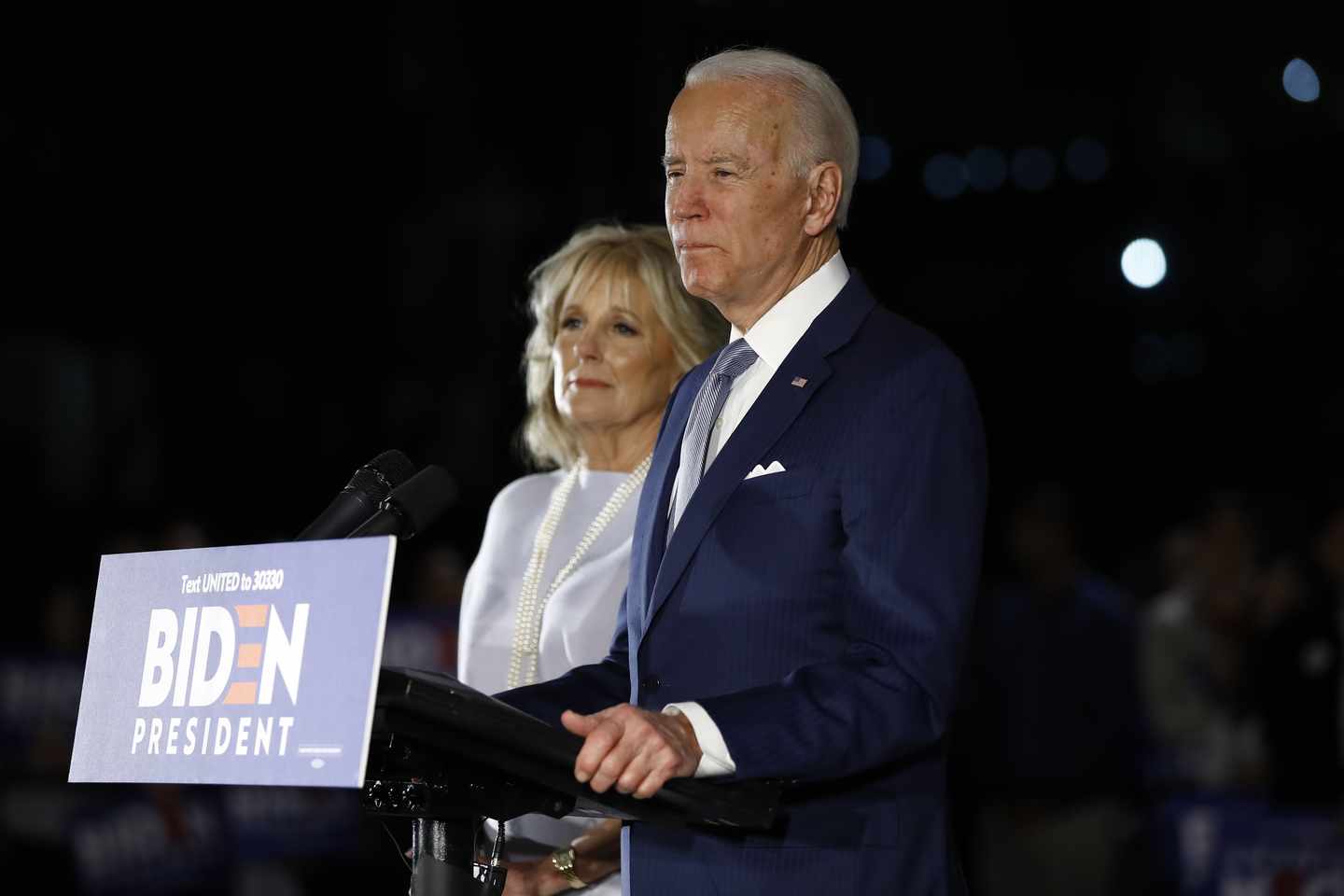To Sanders' Chagrin, Polls Got It Right in Michigan This Time
March 11, 2020#election2020 #JoeBiden #polls #BernieSanders #Michigan

Bernie Sanders insisted the polls were wrong. He was right – in 2016. This time proved to be a different story.
While the Michigan secretary of state had warned reporters earlier Tuesday that official results in the Democratic primary wouldn’t be known until Wednesday, the Associated Press declared Joe Biden the winner and Sanders the loser a little more than an hour after polls closed.
It was a blow for the progressive candidate, who hoped to defy the odds and the projections again in Michigan, just as he had before. His loss, however, meant vindication for the pollsters.
Prognosticators were wrong the last time around in the Wolverine State, so much so that Sanders’ triumph over Hillary Clinton was subsequently dubbed “one of the worst polling errors in political history.” But mistakes four years ago were not repeated in 2020.
According to the RealClearPolitics average, Biden led the Vermont senator before Election Day by a 55% to 33% spread. As of early Wednesday morning, with 99% of precincts reporting, the former vice president has a 52.9%-36.5% lead.
And while the media’s attention was on swing-state Michigan Tuesday night, Mississippi and Missouri also followed the pollsters’ script. Biden chalked up wins in both states, along with Idaho. As of early Wednesday morning, Sanders had a seven-percentage-point lead in North Dakota and was tied with Biden in Washington state. Those latter two races were up in the air when word began circulating among reporters Tuesday night that Sanders would not address supporters or journalists.
Pollsters, however, were more than happy to talk.
“We will wait for Washington state where it could be close,” liberal pollster John Zogby told RCP. “But overall, a very good night for pollsters.”
What about the Michigan, where political surveyors missed the mark 2016? “Overall polls did fine” there, Zogby said. “At least one over-estimated Biden’s performance,” but “polls won tonight.”
The big miss four years ago resulted from underestimating the number of young voters who would flock to the polls on Sanders’ behalf. As Aaron Blake of the Washington Post later noted, pollsters estimated that voters under 30 would account for one of every 10 votes cast. In reality, they were one out of every five. With his promise of free college and health care, Sanders won 80% of that demographic.
Pollsters had more accurate information to work off of in 2020. Looking back, they were able to account not only for the 2016 presidential race but also for the state’s 2018 gubernatorial election. Still, pundits with spreadsheets are not prescient. Biden likes to remind the national press corps how he was left for dead just weeks ago, how his presidential vital signs were dismissed as mere twitches of “a zombie campaign.”
But pollsters got it marginally wrong before they got it very right.
They had Biden finishing second in Iowa -- where he actually placed a distant fourth. Then the former vice president was expected to take fourth place in New Hampshire but came up a disappointing fifth. Nevada was supposed to mean a distant second for Biden, which in fact occurred, though the margin was greater than expected.
But then came South Carolina.
The long-projected Biden firewall turned out to be the place where Biden caught fire. Polling had him winning the Palmetto State by comfortable double digits. He exceeded those favorable numbers, speeding past Sanders 48%-20%.
Why isn’t polling more accurate? One reason is that voters often make up their minds at the last minute. According to AP VoteCast surveys, for instance, late-deciders made the difference on Super Tuesday. About a quarter of voters in Texas didn’t know whom they would support until right before they entered the ballot box. In Minnesota, it was nearly half of the electorate.
All of this favored Biden, who has made quick work of turning former rivals into trusted surrogates. The establishment coalesced around him ahead of Super Tuesday with Minnesota Sen. Amy Klobuchar and former South Bend, Ind., Mayor Pete Buttigieg offering their endorsements. With that help, the former vice president became a second iteration of the comeback kid.
He had told the press and the public not to count him out. He noted that Bill Clinton won exactly one of the first 11 primaries and caucuses in the 1992 Democratic race. Though many scoffed, he cleaned up on Super Tuesday to reclaim front-runner status, and added to that lead on Tuesday night.
“To all those who are knocked down, to all those who have been counted out, left behind — this is your campaign,” Biden following his Michigan victory. “Just a few weeks ago, many of the pundits had declared this candidacy dead. Now we're very much alive.”
“There’s a way to go,” he added. It looked, Biden said about 30 minutes before midnight, like “we are gonna have another good night.”
So did the pollsters.
Source: https://www.realclearpolitics.com/

